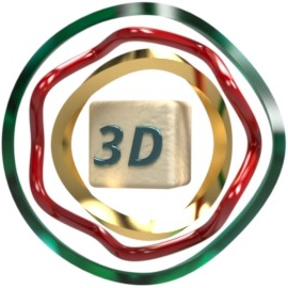Welcome to the Onshape forum! Ask questions and join in the discussions about everything Onshape.
First time visiting? Here are some places to start:- Looking for a certain topic? Check out the categories filter or use Search (upper right).
- Need support? Ask a question to our Community Support category.
- Please submit support tickets for bugs but you can request improvements in the Product Feedback category.
- Be respectful, on topic and if you see a problem, Flag it.
If you would like to contact our Community Manager personally, feel free to send a private message or an email.
How to rotate everything to align with a different Sketch Plane
 l_m724
Member Posts: 11 ✭
l_m724
Member Posts: 11 ✭
Hi there
I'm coming from a Blender background and have no real knowledge about CAD Software like Onshape. I started creating an object (part?) but noticed midway through that i the Object is oriented the wrong way in the sense that what would be considered "Top" on the real object is "Down" in Onshape. Unfortunately even with thorough Googling i was unable to find any way to fix this. I read about the Transform Rotate feature, however, this does not seem to do anything, as i can't select any entities to rotate and also don't have any X/Y/Z axis to select. Maybe i'm confused, since this shouldn't be so difficult.
I'm looking for the Blender "a > r > z > 90 > Enter" equivalent in Onshape. I hope that clarifies what i mean for some of you.
Thank you
Best Answers
-
 rick_randall
Member Posts: 416 ✭✭✭
rick_randall
Member Posts: 416 ✭✭✭
If your part is relatively simple, go back and edit the sketch plane(s) to the correct orientation. Warning: if your part has a lot of features this can get tricky (lots of red in the feature tree and a lot of work to correct - but still, it can be done).
Sometimes, it's just easier to start over. Just my personal observations, it depends on your specific application - others may have better advice.
0 -
 wayne_sauder
Member, csevp Posts: 646 PRO
wayne_sauder
Member, csevp Posts: 646 PRO
Rick is correct; returning and fixing things to have the proper orientation is best. However, if you have an object, the transform command should be able to rotate it. Study mate connectors! They provide the power to do some amazing things.
0

Answers
If your part is relatively simple, go back and edit the sketch plane(s) to the correct orientation. Warning: if your part has a lot of features this can get tricky (lots of red in the feature tree and a lot of work to correct - but still, it can be done).
Sometimes, it's just easier to start over. Just my personal observations, it depends on your specific application - others may have better advice.
@l_m724
Rick is correct; returning and fixing things to have the proper orientation is best. However, if you have an object, the transform command should be able to rotate it. Study mate connectors! They provide the power to do some amazing things.
Thanks guys. This is really disappointing that there is no other way,,,
Not sure what you mean…
There are two ways to do it as describe above: the "proper" way in parametric CAD is to go back and fix the underlying geometry. As a general rule parametric CAD requires a bit more planning and thinking ahead instead of just jumping and creating shapes.
However as a "quick-fix" the transform tool can do exactly what you want using a mate connector as the input (or using the "transform by mate connector option"). In this case all you have to do is pick the "mate connector" icon next to the "axis" input and click the origin (it will default to Z axis rotation)! Not sure why that would be "disappointing", especially considering this shouldn't be something you do often in parametric CAD…
A third option depending on what you are doing would be to put things together in an assembly in which case the part's up/down doesn't really matter…